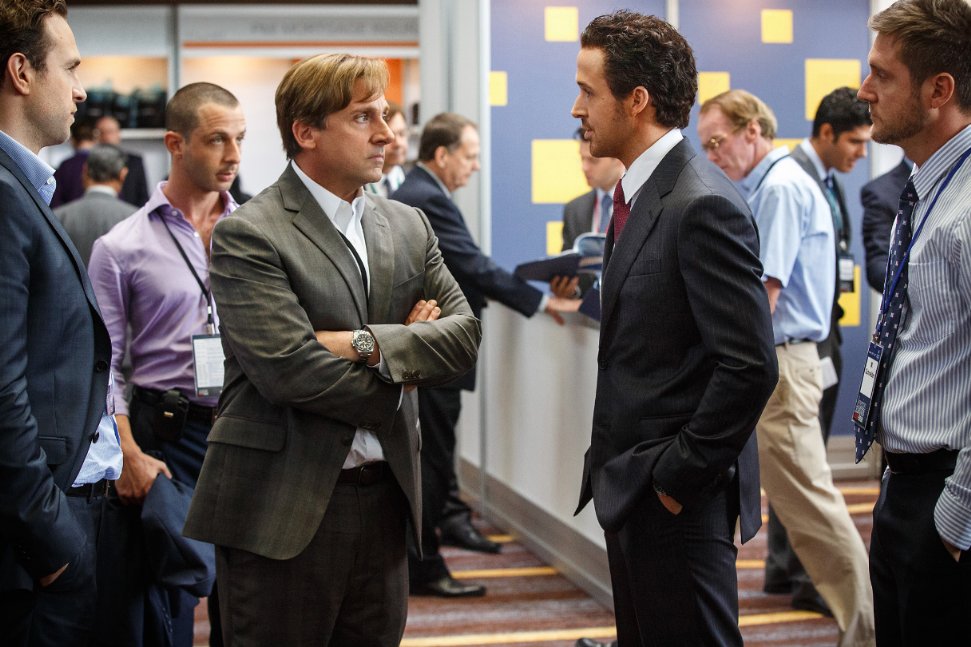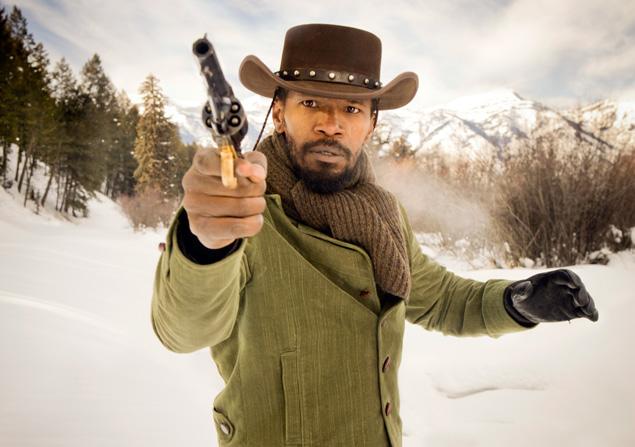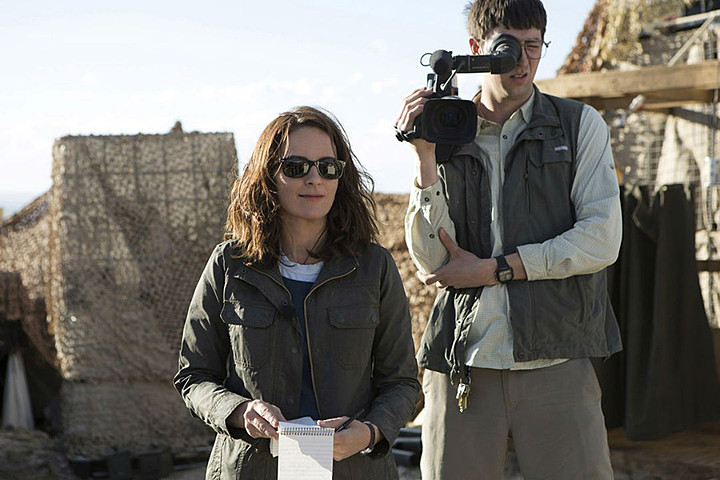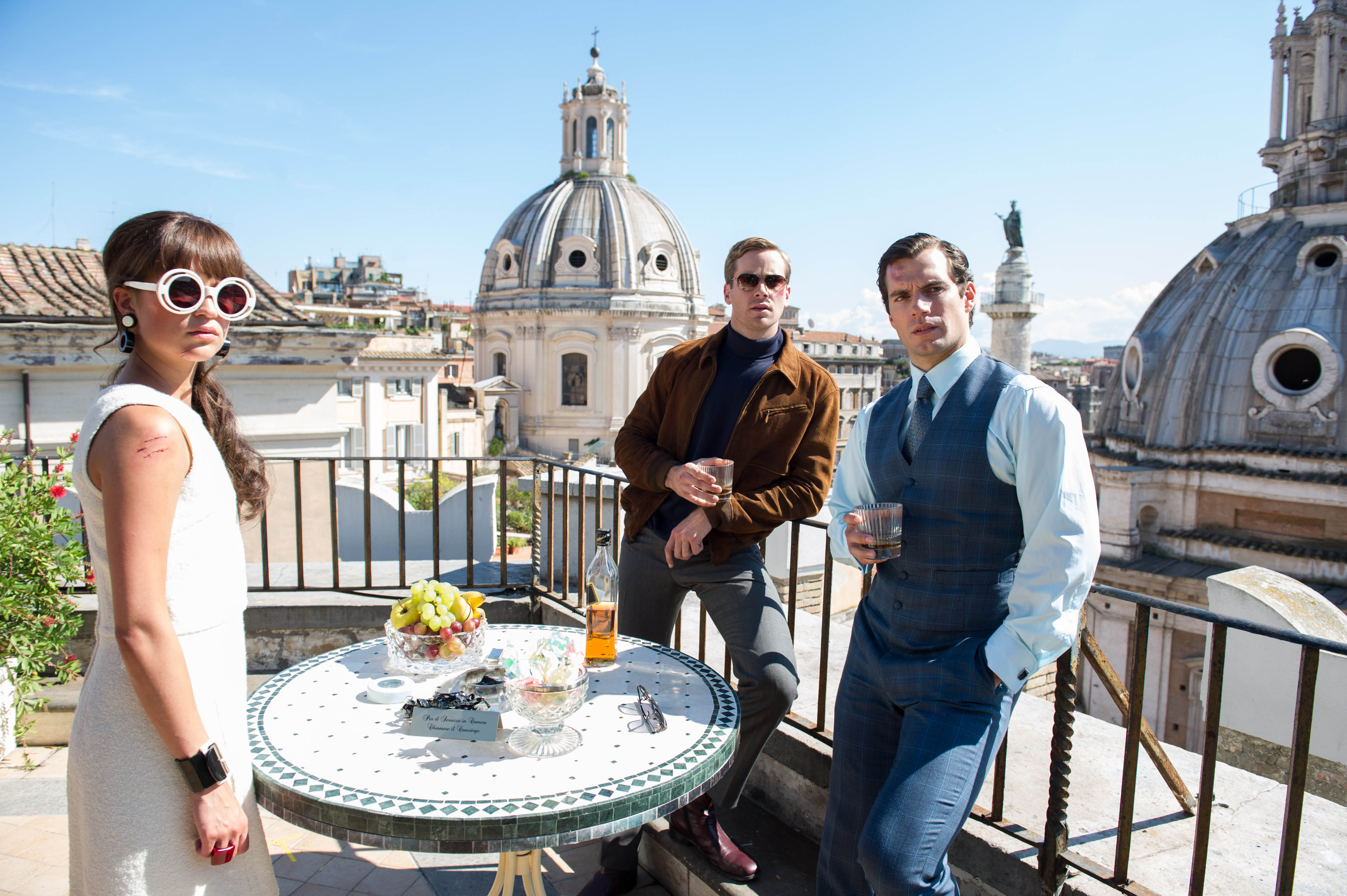Imagine if you were sitting at the poker table and you knew your opponents hand. Even better, as the turn and the river hit the table your opponents hand looks increasingly better. But you know what’s coming and take every advantage to bait them into betting against you. That advantage seems too good to be true right? Well of course it is…you’d be pretty rich but poker would be really boring.
What’s most disturbing is in Adam McKay’s new film The Big Short that exact advantage is discovered, but in the housing market. Dr. Michael Burry (Christian Bale) runs a west coast hedge fund with what he believes to be complete and total autonomy. His knowledge of the market has made his investors millions and he’s looking for the next big thing. He shows up to the office in flip flops and the same shirt/shorts combo every day – blasting heavy metal while he fumbles through complex algorithms on his white board.
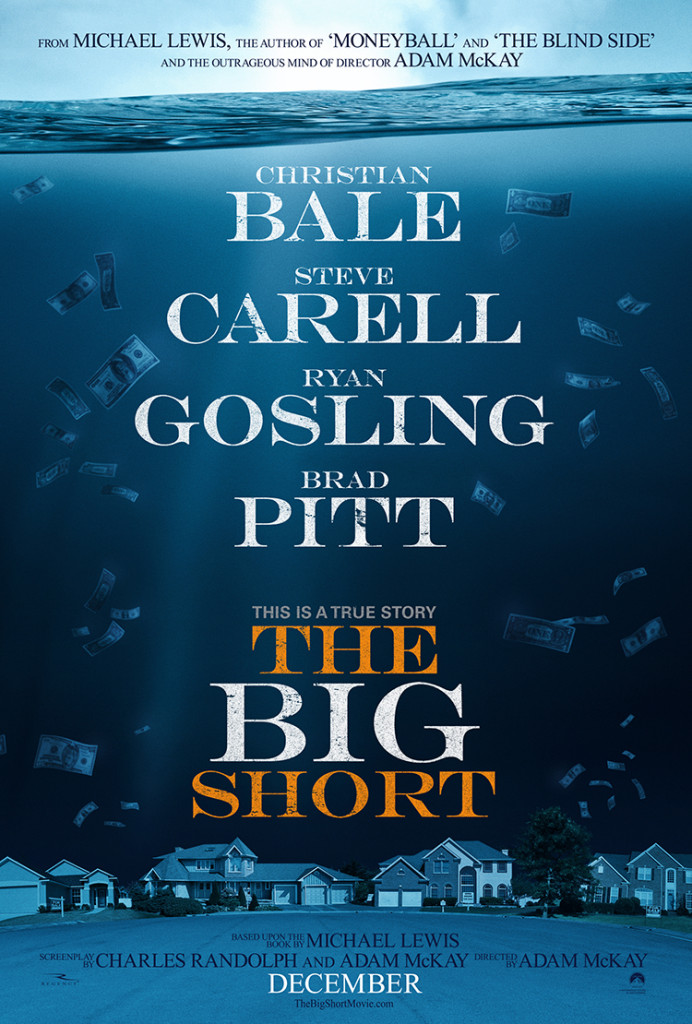 What he uncovers is incredible. Burry finds the housing market is a massive bubble conflated by thousands of faulty mortgages being passed off as AAA quality. His play is simple – travel to New York and pitch the bank a simple proposal – have them create a credit default swap, to the tune of $50-$200 million per bank. Essentially Burry wants the banks to create a way for him to bet against the housing market, all he has to do is insure his investment with some silly expensive premiums. The banks think – how can we lose? The housing market is rock solid with only upward growth for decades. They don’t just jump at the opportunity to sell these swaps to Burry, they laugh him out of every room. Before the day is out Burry has invested $1.9 billion against American mortgages.
What he uncovers is incredible. Burry finds the housing market is a massive bubble conflated by thousands of faulty mortgages being passed off as AAA quality. His play is simple – travel to New York and pitch the bank a simple proposal – have them create a credit default swap, to the tune of $50-$200 million per bank. Essentially Burry wants the banks to create a way for him to bet against the housing market, all he has to do is insure his investment with some silly expensive premiums. The banks think – how can we lose? The housing market is rock solid with only upward growth for decades. They don’t just jump at the opportunity to sell these swaps to Burry, they laugh him out of every room. Before the day is out Burry has invested $1.9 billion against American mortgages.
Quickly this news spreads on the street. One of the first to really dig into Burry’s idea is a brash, spray tanned douchebag at Deutsche Bank, Jared Vennett (Ryan Gosling.) Vennett’s problem is lack of influence so he quickly begins spinning like the Tasmanian devil, looking for any hedge fund with a pulse to back his play. After exhausting nearly every option he finds a potential suitor in Mark Baum (Steve Carrell) – a chubby hedge fund manager under the umbrella of Morgan Stanley. Baum is skeptical of everyone and everything but as he puts it after Vennett’s pitch, “I completely believe the investment in himself.” Soon, Baum and his boys are off to Miami to get a look at this “bubble” in the flesh – what they find is beyond depressing.
Rows of empty homes from McMansions to ramblers. The real estate agent that gives them a tour refers to the empty homes as a “gully” – just a little hiccup that she’s sure will rebound in time. They then meet up with a couple doofus mortgage brokers who explain they receive bonuses on the amount of mortgages they sell not the quality. Quality credit? Screw that, just get those stupid Floridians in the keys to the house at all cost. Baum quickly realizes the housing market swims almost exclusively in the shallow end and is run by not only greed but unending stupidity.
To explain this incredibly convoluted and extremely upsetting practice McKay leverages ingenious asides throughout the film as celebrities are paraded out to explain the intricacies of credit default swaps, collaterized debt obligation and synthetic collaterized debt obligation. Whether it’s Margot Robbie in a bubble bath sipping champagne, Anthony Bordain cooking day-old fish or Selena Gomez playing blackjack with a Yale professor it’s an incredibly effective design that doesn’t dumb down these insane concepts but allows a normal audience to understand. It’s never insulting and always entertaining.
As McKay’s angry riptide moves closer to 2008, Wall Street and even more characters begin to get in on the act. Two young hedge fund upstarts from Colorado (Finn Wittrock and John Magaro) continually are turned away from larger investments on the street until they discover Burry’s findings. Leveraging the help of has-been banking ace Ben Rickert (Brad Pitt) they start shorting the housing market as well – leveraging the cronyism that got the U.S. into this mess by bro-ing it up with these morons only to stick the knife in their back.
The Big Short is undoubtedly a comedy but by no means does that make it any less fiery, smart or introspective. McKay knows this material and understands the wool that was pulled over normal American’s eyes – only to discover the people running the housing market had almost no clue what they were doing. It’s infuriating to relive but astounding to comprehend. The Big Short is by no means a perfect movie but it is the finest middle finger I’ve seen pointed at Wall Street in some time.

